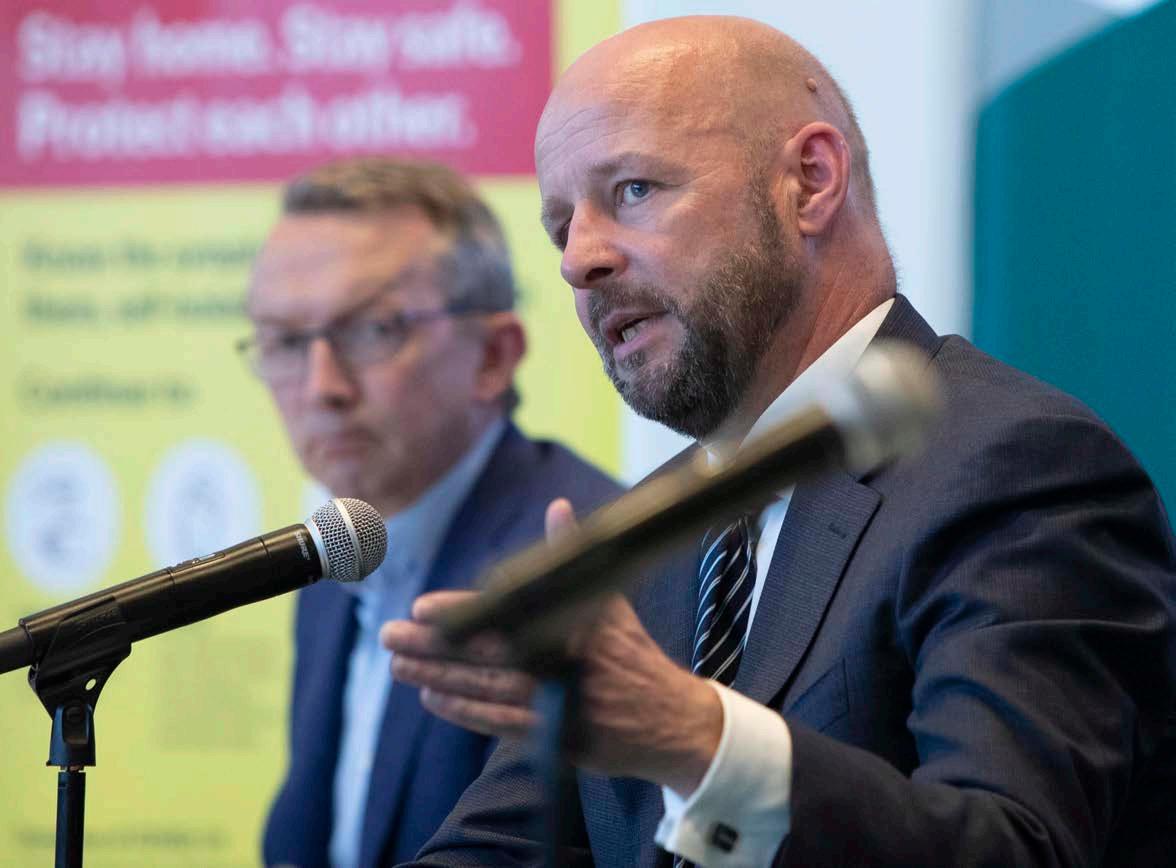
3 minute read
A final chapter and an enduring legacy
As his presidency comes to an end in 2021, Prof Philip Nolan steps up to lead NPHET’s critical Covid modelling work
by Peter McGuire
Academics - let alone university presidents - rarely become household names. But 2020 is a rare year and one that’s seen doctors and scientists take centre stage in response to the global Covid-19 pandemic.
Step forward Professor Philip Nolan, President of Maynooth University, and, as the chair of the National Public Health Emergency Team’s (NPHET) Irish Epidemiological Modelling Advisory Group, a key figure in the national fight against the virus.
Despite leading many changes at Maynooth and across the wider university sector over the past decade, Nolan may not have expected such a tumultuous end to his tenure as President, which draws to a close in 2021. The search is on for his replacement.
Covid-19 presented challenges to Nolan on multiple fronts. As university President: how could he lead a swift pivot to fully online learning? As chair of the advisory group: how to ensure that the available data could be used to save as many lives as possible? As a parent and human being: how could he make sure to support his family and manage some kind of work-life balance? “
Over the years, I sometimes wondered if my academic skills could be of use to anyone,” says Nolan. “After my medical training, I became a medical researcher and handled large data sets, before moving into leadership and administration roles in third-level. Working with NPHET brought me back to my earlier training and starkly reminded me that learning does not end with your degree - it only begins.”
Nolan says that the pandemic has reminded us all of the value of expertise. “There are colleagues all over the third-level sector contributing their knowledge - sometimes in public roles and, other times, in quieter ways such as through their research or supporting students to learn.” With several vaccines now on the horizon, Nolan is particularly proud of his colleagues in Maynooth University and on NPHET. “Everybody felt under stress and pressure when the first lockdown came in March and April, but my academic and administration colleagues have worked so hard for students and for public health. I won’t lie: it was a strain, but everyone really rose to the crisis.”
Keeping a clear head under pressure means making some time to breathe, and while Nolan hasn’t had a lot of it this year, he has tried to spend time with family and friends, to cycle where possible, and when confined indoors, to exercise, write his diary and take time to read. “I’ve been really inspired by the work ethic of people around me,” he says, but his record is inspirational in its own right.
During his time as President of Maynooth University, he devised a new undergraduate curriculum which broadened the range of subject options, including allowing students to mix and match subjects from arts and science: studying physics and philosophy or chemistry and economics, for instance. “It was about giving students flexibility and choice in terms of their options and encouraging them to look outside their core areas to gain fresh perspectives and spark new intellectual interests,” he says. In his 10-year term, Nolan also oversaw the expansion of the Law Department and the School of Business, with over 250 additional faculty members. He instigated major campus developments including Maynooth University’s largest capital project, a €57 million ‘Technology Society and Innovation’ building development, and the opening of the International College of Engineering at Fuzhou University in China.
Under his leadership, Maynooth has become the fastest growing university in Ireland and the only Irish university in the top 100 Times Higher Education Young University Rankings. As chair of the Irish Universities Association, his vision was key in a major reform of the Leaving Cert grading system, which is widely credited with taking some of the heat and pressure out of the CAO points system.
As he looks back on, what by any objective measure, has been an enviably successful career, does he have any regrets? “I’ve enjoyed the stages of my career: medicine, medical teaching and research and a university leader. My only regret is that I could not have a full lifetime for each of them.” Where will he go from here? “It’s been a busy year and I’m grateful to have served in these two roles. I’ll be taking some time to consider what’s next.”

